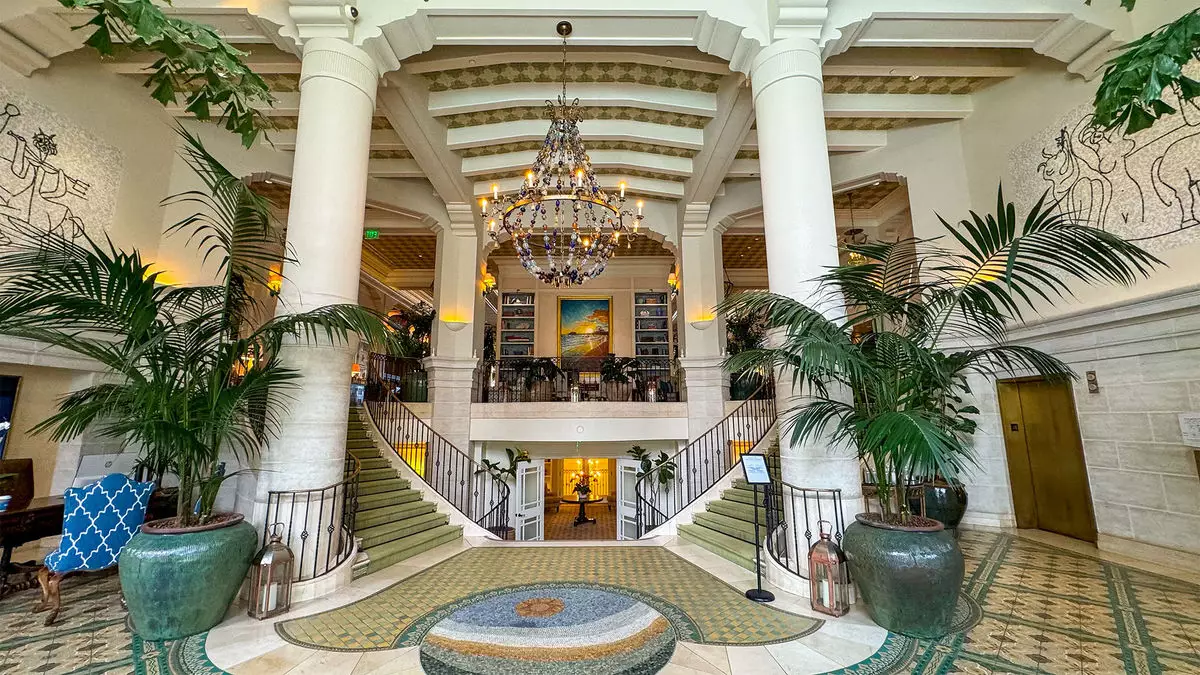On January 27, Malibu exhibited a striking contrast to the chaos just beneath its surface. Under a remarkable blue sky, the Malibu Beach Inn had just resumed operations after a two-week shuttering, necessitated by the ravages of the Palisades Fire. Dine al fresco at the Carbon Beach Club Restaurant, where diners are few, facing the gently rolling waves of the Pacific. The emptiness inside offers a stark reminder of the tragedy lurking less than a mile away—as acres of beautiful California landscape lay charred and desolate. Amid this picturesque coastal view, one can’t help but feel the weight of the ongoing recovery efforts that will dictate the future of both the local community and its economy.
The lack of patrons at the inn isn’t just an unfortunate byproduct of a natural disaster; it underscores a systemic issue within the hospitality industry as it grapples with the repercussions of ongoing emergencies. Gregory Day, president of hospitality for Mani Brothers Real Estate Group, highlighted that nearly a third of the hotel’s rooms were occupied by firefighters battling the ongoing flames. The hotel, in a gesture of solidarity, offered significant discounts—not typical fare, but understandable during a time of crisis. The need to offer a helping hand reflects a greater theme: the hospitality sector is essential for both the recovery of local communities and the well-being of individuals displaced by disaster.
In a proactive move, the Malibu Beach Inn opted for an intensive remediation process. Such measures remind us how hospitality venues not only house guests but also contribute directly to community health—both physical and emotional. Clean linens, air purifiers, and available mental health services stem from an understanding that hospitality goes beyond just providing a room. Preparing for guests includes ensuring they feel safe and supported, particularly in post-disaster scenarios. This also raises critical questions about the long-term impacts on mental health, particularly among those who provide emergency services, who often carry the weight of what they witness.
However, the revitalization of tourism in Malibu requires more than just cleanup and accommodations; it hinges on accessibility. The current state of the Pacific Coast Highway complicates travel, transforming otherwise straightforward journeys into treks that can take hours. This inconvenience might deter potential tourists—the very lifeblood of Malibu’s economy—which in turn affects local employment levels and the overall morale of the workforce that relies on incoming guests. Local hospitality figures like Simon Fricker from the Fairmont Miramar Hotel emphasize a crucial point: it’s not just about the physical scars left by the fire, but also the damage to public perception.
Even with only a fraction of Los Angeles County impacted by the fire, perceptions often overshadow reality. Mistaken beliefs about widespread devastation can result in a tourism downturn that causes as much damage as the fire itself. This dual crisis is especially energetically discouraged by hotel operators who reiterate that the best way to assist the community is to continue supporting local tourism. Here in this coastal town, the mission is clear: transcend the damage, combat misconceptions, and invite visitors back to experience the unscathed California they know and love. Communication is vital and must convey confidence and clarity in reassuring potential patrons.
Insights from industry insiders emphasize the richness of community spirit evident in a time of distress. Properties like Shutters on the Beach and Hotel Casa del Mar have taken similar measures to support evacuees while maintaining their normal business operations. Offering extensive discounts and services, from laundry to pet accommodations, reveals an understanding of shared hardships in this community. These hotels serve as microcosms of the attempts being made to provide comfort during turbulent times, echoing the fundamental belief in hospitality—not just as a service, but as a lifeblood for the spirit during recovery.
As Malibu progresses through its healing journey, it does so with an emphasis on resilience. This fragile balance between recovery and moving forward comes with the paramount reminder that community support is essential. In hosting those displaced while also welcoming visitors, the hotel sector embodies a simultaneous commitment to helping both local residents and economically reviving Malibu. Each wave rolling gently on Carbon Beach is a promise of a hopeful return to normalcy—a symbol of endurance that guarantees a future where Malibu stands resilient and vibrant once more.


Leave a Reply